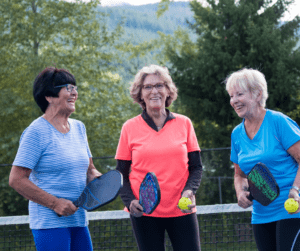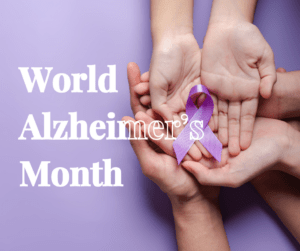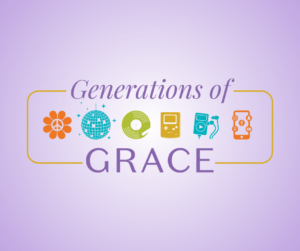The Benefits of Physical Therapy for Seniors: Enhancing Health and Independence
October 16, 2024
As people age, the body naturally undergoes changes that can impact mobility, strength, and overall function. For many seniors, maintaining independence and quality of life is paramount, and physical therapy (PT) can play a key role in achieving this. Whether it’s recovering from surgery, managing chronic conditions, or preventing falls, physical therapy offers a host of benefits for older adults. In this blog, we’ll explore the numerous ways physical therapy can benefit seniors, from improving mobility to boosting mental health, and how companies like Grace Management, Inc. help support seniors in leading fulfilling, active lives.
-
Improving Mobility and Flexibility
One of the most common challenges seniors face is decreased mobility. As muscles weaken and joints stiffen with age, everyday tasks such as walking, climbing stairs, or reaching for objects can become difficult. Physical therapy helps by focusing on exercises that improve flexibility, strengthen muscles, and increase joint range of motion.
- Stretching and Range of Motion Exercises: Therapists guide seniors through specific stretches designed to loosen tight muscles and tendons, which helps enhance flexibility. This can make movements smoother and reduce discomfort during daily activities.
- Strengthening Exercises: Using light resistance training, seniors can rebuild muscle mass, which declines naturally with age. Stronger muscles lead to improved stability and mobility, making it easier to perform tasks like walking or lifting objects.
By regaining and maintaining flexibility and mobility, seniors can preserve their independence and avoid the frustration that comes with reduced physical capabilities.
-
Pain Management
Chronic pain, often stemming from conditions like arthritis, osteoporosis, or general wear and tear, can significantly impact a senior’s quality of life. Rather than relying solely on medications, which may have side effects or risk of dependency, physical therapy provides a non-invasive, drug-free option for pain relief.
- Manual Therapy Techniques: Physical therapists use hands-on techniques, such as massage or joint mobilization, to relieve muscle tension, improve circulation, and reduce pain.
- Targeted Exercises: Specific exercises are designed to alleviate pain in problem areas, such as the lower back, knees, or shoulders. Regularly practicing these movements can lead to long-term pain relief by addressing the underlying causes of discomfort.
For seniors struggling with chronic pain, physical therapy not only reduces discomfort but can also improve mood and decrease reliance on pain medications.
-
Fall Prevention and Balance Improvement
Falls are a leading cause of injury among seniors, often resulting in fractures, hospital stays, or even a decline in overall health. According to the Centers for Disease Control and Prevention (CDC), one in ten falls results in an injury that restricts older adults’ activities for a day or more. Fortunately, physical therapy can significantly reduce this risk by focusing on balance improvement and fall prevention strategies.
- Balance Exercises: Therapists work with seniors on exercises that strengthen the core and improve stability, such as standing on one foot, heel-to-toe walking, and using balance boards. These activities can enhance coordination and reflexes, reducing the likelihood of falls.
- Gait Training: Physical therapists evaluate a senior’s walking pattern (gait) and work to correct any issues, such as uneven steps or shuffling. Improving gait mechanics makes walking safer and more efficient.
By improving balance and teaching seniors how to move more confidently, physical therapy can prevent potentially life-altering falls, enabling seniors to move with greater assurance.
-
Recovery from Surgery or Injury
Seniors often require surgery for various conditions, including joint replacements or injuries like fractures. Post-surgery recovery can be a long and arduous process, but physical therapy can expedite healing and help seniors regain function more quickly.
- Post-Surgical Rehabilitation: After surgery, physical therapy focuses on restoring strength, mobility, and flexibility in the affected area. Personalized rehabilitation programs help seniors return to their daily routines faster and with less discomfort.
- Injury Recovery: For those recovering from injuries, such as sprains, strains, or broken bones, physical therapy can accelerate the healing process by promoting tissue repair, reducing swelling, and rebuilding strength.
With professional guidance and support, seniors can achieve a more complete recovery, ensuring that surgery or injury does not lead to long-term disability.
-
Managing Chronic Conditions
Many seniors live with chronic health conditions that can negatively impact their ability to stay active. Conditions like arthritis, Parkinson’s disease, or heart disease require special care, and physical therapy offers targeted solutions to manage symptoms and maintain function.
- Arthritis Management: Physical therapists design low-impact exercise programs to reduce joint stiffness and pain, increasing mobility without exacerbating the condition.
- Parkinson’s Disease Treatment: Specialized physical therapy techniques help improve movement, posture, and balance in seniors with Parkinson’s, allowing them to maintain a higher degree of independence.
- Cardiac Rehabilitation: For seniors with heart conditions, physical therapy includes carefully monitored exercises that improve cardiovascular health while ensuring safety and preventing overexertion.
Physical therapy helps seniors manage the symptoms of chronic conditions in a way that promotes physical well-being and helps prevent further health complications.
-
Boosting Mental Health and Confidence
The physical benefits of therapy are well known, but its mental health advantages are often overlooked. Regular physical activity, including the exercises prescribed in physical therapy, has been shown to boost mood, reduce anxiety, and combat depression, all of which can be particularly important for seniors.
- Endorphin Release: Exercise triggers the release of endorphins, the body’s natural mood-lifters. Physical therapy can help seniors feel more positive and energized, reducing feelings of loneliness or isolation.
- Building Confidence: As seniors regain mobility and strength, they often experience a significant boost in self-confidence. This can translate into a more active lifestyle and greater participation in social and recreational activities.
By focusing on both physical and emotional well-being, physical therapy provides seniors with the tools they need to enjoy a more fulfilling life.
-
Increasing Independence and Quality of Life
Perhaps one of the most significant benefits of physical therapy is its ability to help seniors maintain their independence. Whether it’s managing daily tasks, navigating the home, or participating in hobbies, the improvements brought by physical therapy empower seniors to live more active, self-sufficient lives.
- Performing Daily Activities: With improved strength, balance, and mobility, seniors can continue to handle daily chores, personal care, and errands on their own, avoiding dependence on others.
- Pursuing Hobbies and Interests: Increased physical capability allows seniors to engage in their favorite activities, such as gardening, traveling, or even playing with grandchildren, contributing to a higher quality of life.
Physical therapy restores a sense of autonomy, allowing seniors to live with dignity and purpose, regardless of age.
At Grace Management, Inc., the well-being of seniors is a top priority. They understand the importance of maintaining an active, healthy lifestyle for older adults, which is why they partner with professionals to ensure residents have access to personalized physical therapy services. By offering programs that address mobility, balance, and overall health, Grace Management fosters environments where seniors can thrive physically, emotionally, and socially.
For seniors looking to maintain their independence and quality of life, Grace Management, Inc. provides the support, resources, and compassionate care needed to help them achieve these goals. With a holistic approach to senior living, they ensure that every individual can age with grace, vitality, and dignity.










